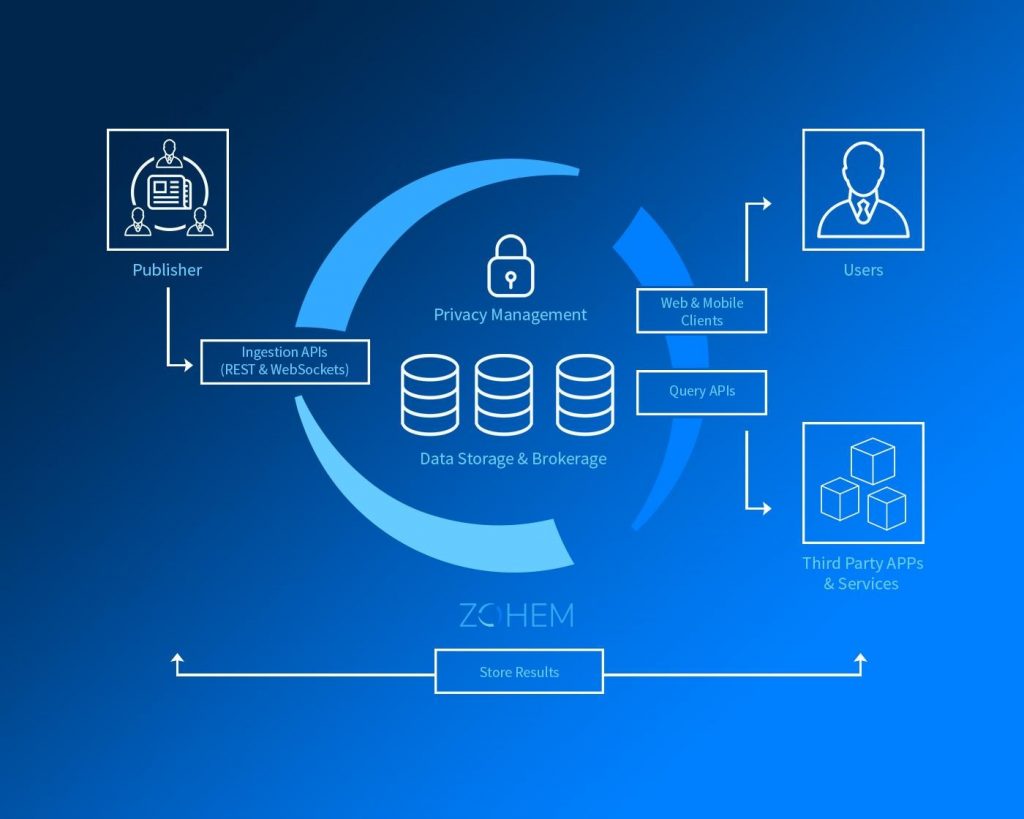Revamping the AdTech Industry with Zohem Data Management Protocol
“The Web as I envisaged it, we have not seen it yet. The future is still so much bigger than the past.” — Tim Berners Lee
Among the list of developments which changed the face of the internet, HTTP holds a special place. Without Tim Berners Lee’s invention, the internet would have been broken and fragmented, and possibly a lot less usable. Imagine, each browser would have worked with a different protocol, and for accessing different websites, you might have needed different software– one for documents, one for email, one for images, one for music files, one for videos, so on and so forth. Accessing different websites would have been cumbersome, complicated and expensive, and thus, significantly limiting the impact of the Internet. In simpler words, the technologized world that live in, where Internet is the lifeline of many processes– communicating with long-distance friends, ordering a pizza or booking a cab, would have been unimaginable.
A protocol, in this context, is simply a set of rules which defines how computers talk to each other. Thus, protocols facilitate a Universal Plug and Play (UPnP) system where different components can interact with each other without reinventing the entire wheel of communication. Protocols lower barriers for new entrants, which is a crucial condition for a healthy, competitive market. Let’s take an example — Whatsapp has 1.3 billion users where Telegram has 100 million users. Due to network effects, Whatsapp has more users on it than Telegram, even if Telegram may be more feature-rich. It is easy to see that if Whatsapp had a protocol like XMPP, then the user could have easily switched between the two.
The AdTech industry is missing a good protocol
The lack of a protocol has particularly affected the AdTech industry, which suffers from fragmentation and chaos. The result of this fragmentation and chaos is that a few giant players, well-equipped with resources, have created an unfavourable supremacy of players like Google and Facebook (the GooBook duopoly), which not only have their own data, but also help themselves to the data of other publishers. The rest of the AdTech industry is marred by the inefficacies of DMPs who do not have an effective way of communicating with each other to refine and sell their data. The result of it is that publishers get poorly compensated for their efforts of creating content and engaging users, and advertisers have to put with unsatisfactory targeting options. Google and Facebook, in the meanwhile, are having a ball of a time with 50% of the total ad revenue and 99% of the market’s growth.
A lot of these problems of the AdTech industry can be solved with the help of a protocol, which establishes rules around data collection and exchange. Blockchain, a young, disruptive technology has made possible the development and implementation of such a protocol. The protocol can be developed by a single community, but will be available for universal utilisation.
A decentralised protocol for the AdTech industry in the making!
“Let the code speak for itself.”– Don Tapscott
The good news is that AdTech industry will not have to wait for such a protocol for long as Zohem is a blockchain-based user behavior data exchange protocol that aims to resolve the current issues in the adTech industry such as the lack of transparency between exchanges transpiring between the key stakeholders of the industry. Zohem’s Core comprises of a common data layer to which all publishers will be able to contribute data and get rewarded for the same with Zohem Data Tokens (ZDTs). Advertisers will be given access to this data in exchange for ZDTs, and they will also be rewarded for verifying the authenticity of the data points they have accessed. All the transactions on the Zohem platform will be backed by Smart Contracts.
The benefits of this data management protocol are numerous
1 – Publishers can come together to challenge the duopoly, and create fair incentives for themselves.
2 – The protocol enables an ecosystem centered around data exchange where anyone can build applications for higher level usage (e.g. recommendation algorithms)
3 – Increased transparency as every data request and every data submission will be recorded in an open ledger.
4 – Multiple data points for the same attribute, increases our confidence in the data. Enabling this through a protocol, allows each publisher to not only add data of a user, but also help in improving the accuracy of the data.
5 – Users will benefit in terms of utilisation of lesser bandwidth and lower load time of web pages since their data will be taken only once, and that too with their knowledge, contrary to the current practice of sending this data about 30 times for a single page load.
Zohem Data Exchange Protocol which for the first time is challenging GooBook’s advertising duopoly, and its might just change the landscape of the AdTech industry for good. Cheers to the AdTech 2.0.

